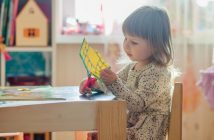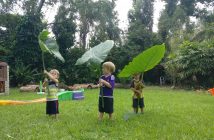Beijing authorities are conducting a review of the city’s private kindergartens, with many being forced to reduce their fees and bring their curricula and practices into line with publicly-run facilities, or be taken over by local government. However beijingkids has seen no evidence to support speculation that this is the first stage of a clampdown on all privately-owned schools.
The clampdown appears to be a long-term result of the city’s building boom of the mid-2000s. Developers were required to include space for kindergartens in all new developments, to meet the city’s daycare needs of having favcilities like child care Werrington. However most developers sold or leased the space to other suppliers. Many of these companies took advantage of the shortage of kindergarten places, and the high value placed on education in Chinese culture, to charge extravagant, if not extortionate, fees. The new rules require them to be run as public facilities, and not for profit.
Currently over 60 percent of Beijing kindergartens are privately owned, and accommodate just over half of preschoolers. (Class sizes are usually smaller in private facilties.) The government’s target is that by 2020 80 percent of kindergartens will be run publicly or as non-profits. However, according to Zhangxing, a researcher from Zero Power Intelligence Group, this is not the end for the private preschool sector. Once the 80 percent goal has been reached, there will still be a substantial number of private kindergartens. The option will still be open to parents to pay more for “elite” facilities (which may include foreign teachers); the purpose of the clampdown seems to be to make sure low-cost local options are also available.
As foreign teachers are usually paid more, the reduced fees may result in some kindergartens no longer being able to employ them. However the government is only currently taking action against kindergartens which are part of residential compounds. Recent tightening of regulations on the qualifications of foreign teachers, and the curriculum taught at Chinese-owned private schools, have led to some speculation on social media that this is the beginning of a more general restriction on private education. However beijingkids has at this point seen no evidence to support this, or to suggest there is any cause for alarm for teachers and parents in the international community.
(Featured image is a stock photograph. No criticism is intended of the practices of the kindergarten depicted.)




